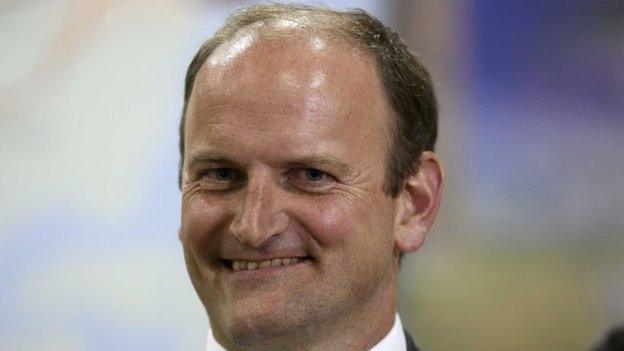Q&A: How much Short money do parties get?
- Published
UKIP leader Nigel Farage has said he will recommend his party rejects £650,000 in so-called "Short money" to which it is entitled.
The prospect of accepting it had caused a row between UKIP's only MP, Douglas Carswell, and party officials.
What is Short money?
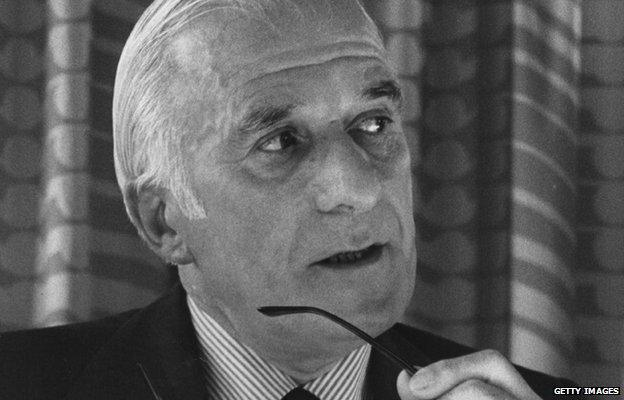
Labour minister Ted Short introduced the allowance in the mid-1970s
Britain's political parties have to rely on donations to fund their campaigning activities. But opposition parties are entitled to millions of pounds a year in public funds to help pay for their activities in Parliament. This is called Short money. It takes its name from former Labour MP Ted Short who was instrumental in its introduction as leader of the House of Commons in 1974 and 1975.
How is it calculated?
To qualify for Short money, a party must have at least two MPs or one MP and more than 150,000 votes. The amount payable to qualifying parties is £16,956.86 for every seat won at the most recent election plus £33.86 for every 200 votes gained by the party. There is also a travel fund of £183,336 which is shared between the parties in line with the same formula. In addition, the Leader of the Opposition's office is entitled to about £777,500 to help with running costs. The parties receive a monthly payment.
How much does each party get?
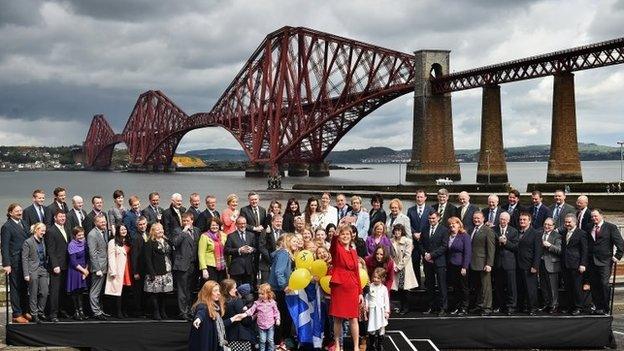
The SNP will be entitled to more than £1m in Short money
The exact amount each party will receive in this Parliament is still being calculated by the House of Commons authorities. But here are some rough estimates based on the funding formula.
Labour is in line to get at least £6.2m a year - about the same as it received in the last Parliament. The SNP will get something in the region of £1.2m - a big increase on the £187,000 it received in the last Parliament, in recognition of the massive increase in votes and seats it saw at the general election.
There is a crumb of comfort for the Lib Dems, who did not receive Short money in the last Parliament because they were part of the government. They are likely to get about £540,000 a year this time.
UKIP and the Greens are in the unusual position of having gained millions of votes between them but ending up with just one MP each. That means Green MP Caroline Lucas and UKIP's Douglas Carswell could be the most well-funded MPs in British history.
UKIP, which was not entitled to Short money in the last Parliament, will be entitled to about £650,000.
The Green Party is in line to get about £212,000 - a big increase on the £66,019 the party received in the final year of the last Parliament.
Plaid Cymru will get roughly the same as it got in the last Parliament, when it received £81,000. The DUP received £166,000 and that is expected to remain the same. The SDLP retained three seats on a slightly lower vote
Will the Green Party keep their Short money?
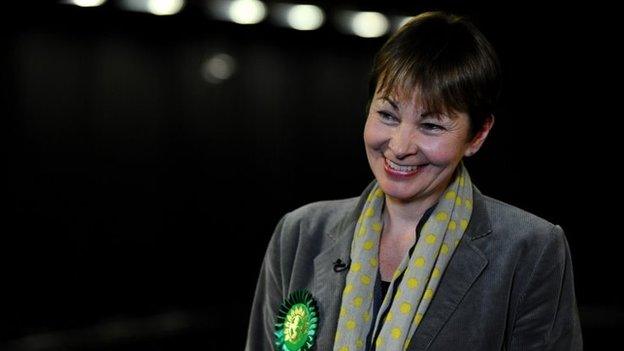
The Green Party should get more than £200,000
Yes. Caroline Lucas said: "The Green Party will be taking its Short money allocation because we take very seriously our responsibility to the million plus voters who backed us.
"It will be used to employ staff to help me, as the sole Green MP, hold the government to account as effectively as possible."
What is the point of Short money?
The original idea was to create more of a level-playing field for opposition parties. The governing party has access to the full might of the civil service machine to formulate its policies. To hold ministers properly to account, opposition party MPs should be able to employ researchers and carry out detailed policy work. That was the thinking. It is meant to be used on policy research for frontbench spokesmen and to pay staff salaries in the Whips and leader of the opposition's offices. It is not meant to be used for political campaigning or paying staff salaries at party HQ.
What do the parties spend it on?
"Very little information is published about the qualifying parties' use of their Short money allocation in carrying out their parliamentary business," according to a paper by the Commons library, external.
"There has been some concern over the years about whether Short Money is being used appropriately," it adds.
The parties are required to submit a report from an independent auditor at the end of every financial year to verify that their Short money was spent "exclusively in connection with the party's parliamentary business".
Why has Douglas Carswell rejected it?
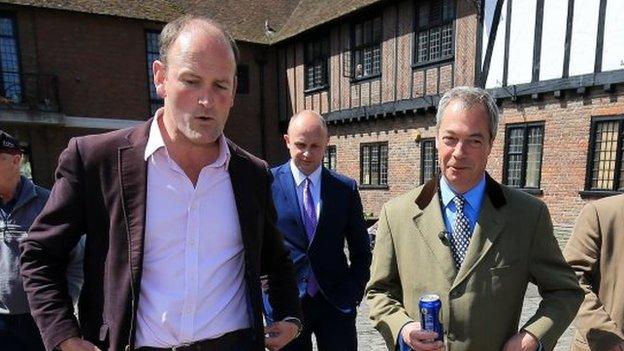
Douglas Carswell and Nigel Farage will decide how to spend the money
Douglas Carswell is a longstanding campaigner against what he sees as the undemocratic and corrupt nature of Westminster politics. He fell out with UKIP party officials when they suggested he use the Short money to employ 15 members of staff. "I am not a US senator, I don't need 15 staff," said Mr Carswell. "UKIP is supposed to be different."
Had anyone tried to reject Short money before?
Not as far as we know.
What about MPs that don't take up their seats?
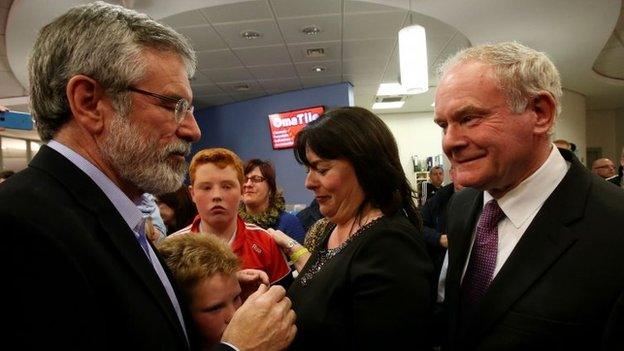
Sinn Fein has had access to the equivalent of Short money since 2006
Short money is only available to parties whose MPs who take the oath in the Commons. Initially, this meant that Sinn Fein, whose MPs do not take up their seats, were not entitled to it. But in 2006, MPs agreed to allow opposition parties "who have chosen not to take their seats" to access public funds to pay staff wages for MPs "in relation to the party's representative business" Sinn Fein uses the money for press, publicity and other representative functions. The Democratic Unionist Party has repeatedly called for this arrangement to be brought to an end.
What about the House of Lords?
A similar scheme, Cranborne Money, after the then Leader of the House of Lords, was agreed on 27 November 1996, to provide financial assistance for opposition parties, in the House of Lords.
- Published13 May 2015
